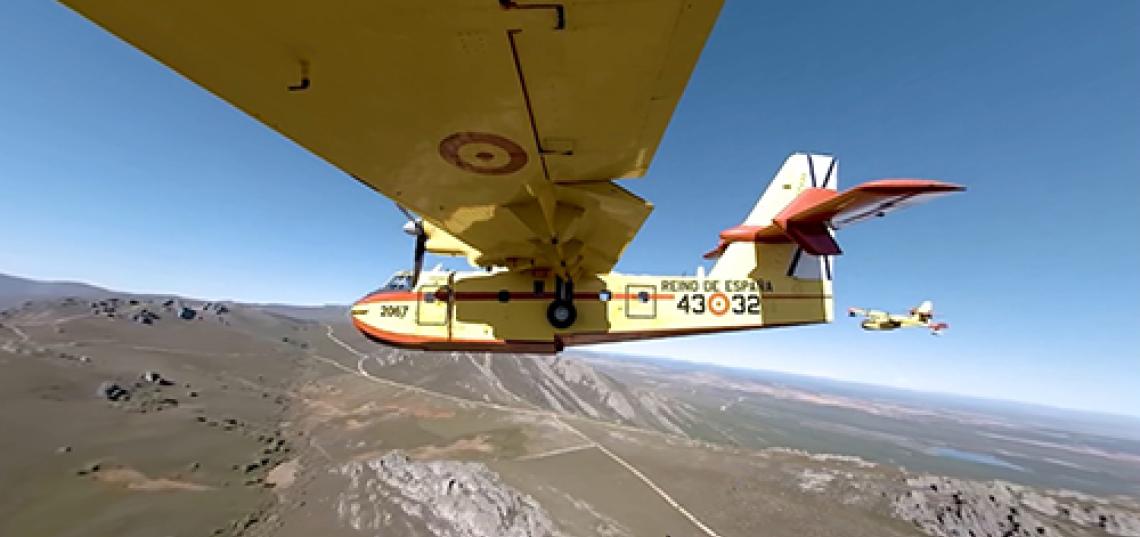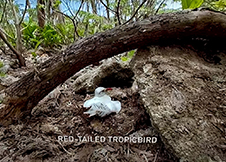
A new study that explored nine different virtual reality (VR) media productions covering climate change available on the Oculus TV, a VR application created by Meta Platforms Inc (formerly Facebook Inc.) reveals that they all used limited qualities of emerging media.
The study’s findings highlight the need for media producers to include a full VR experience with multisensory qualities in climate change storytelling – to enable users to potentially experience the climate change phenomenon virtually and understand the gravity of the global climate change crisis from a multidisciplinary standpoint.
The paper, "Assessing Virtual Reality Media Productions: Findings from a Qualitative Analysis of Immersive Experiences in Climate Change as Offered via Oculus TV" by Ph.D. student Shravan Regret Iyer MCM’18, was published in the Journal Communication Spectrum: Capturing New Perspectives in Communication.
Iyer also presented his research in the presentation “Virtual Reality and Climate Change: A Qualitative Analysis of VR Media Productions on Oculus TV Using VR Head-Mounted Display” at the IAMCR 2022 Conference held in Beijing, China from July 11-15, 2022.
"Shravan Regret Iyer has conducted a ground-breaking study of virtual reality content productions on climate change. His paper promises to make an important and substantial contribution to the field," Iyer’s doctoral advisor Professor of Journalism and Media Studies John V. Pavlik said.
“My thematic analysis showed that the VR media productions utilized limited framing and contextualization of the issues pertaining to climate change — as opposed to the broad multidisciplinary approach that the IPCC report takes and offers as a framework to help people understand the gravity of the problem caused by climate change,” Iyer said.
His findings impact the wellbeing of humans and the planet, Iyer said, “because a growing body of research highlight how experiential media technologies such as VR have the potential to become a medium for education about climate change issues and that VR can increase declarative knowledge, self-efficacy, interest in science, and intentions to engage in climate action and pro-environmental behavior. The body of research also highlights how scholars argue that there is no longer time to discuss the potential of VR but instead to focus on how to scale its uses effectively and responsibly.”
Iyer’s findings from a thematic analysis reveal there are five broad areas related to climate change the VR productions on Oculus TV highlighted, namely, global warming; biodiversity and endangered species; culture and traditions; conservation and disaster management; and agriculture.
His research further shows that these VR media productions did not frame and contextualize their stories from a multidisciplinary standpoint to include cause and effects of climate change such as poverty, hunger, health and well-being, inequality, social justice, socio-cultural, socio-technical, socio-economic, institutional, governance, education, and sanitation, revealing that immersive media productions need to take a multidisciplinary approach to climate change communication.
 Iyer said from a qualitative standpoint, he explored: to what extent do the VR media productions utilize six qualities of EM; what themes do such VR media productions highlight pertaining to climate change; and to what extent do such themes capture key points highlighted by the landmark IPCC 2018 special report's framework.
Iyer said from a qualitative standpoint, he explored: to what extent do the VR media productions utilize six qualities of EM; what themes do such VR media productions highlight pertaining to climate change; and to what extent do such themes capture key points highlighted by the landmark IPCC 2018 special report's framework.
He also explored the productions he studied based on the qualities of Experiential Media (EM), as defined by Pavlik in a landmark paper published in 2018, and this analysis revealed that all nine of the VR media productions he examined utilized limited qualities of EM, which are, interactivity; immersion; multi-sensory presentation; algorithm and data; first-person perspective; and natural user interface.
“My thematic analysis showed that the VR media productions utilized limited framing and contextualization of the issues pertaining to climate change — as opposed to the broad multidisciplinary approach that the IPCC report takes and offers as a framework to help people understand the gravity of the problem caused by climate change,” Iyer said.
Iyer said his research findings expand the scholarly work on VR because the existing body of literature focuses on VR's role in presence, embodiment, empathy, and knowledge, and considers limited scholarly work on VR content production analysis, particularly on climate change.
These VR media productions did not frame and contextualize their stories from a multidisciplinary standpoint to include cause and effects of climate change such as poverty, hunger, health and well-being, inequality, social justice, socio-cultural, socio-technical, socio-economic, institutional, governance, education, and sanitation.
His study could be the first of its kind, Iyer said, given its qualitative approach (VR content analysis); its use of Pavlik's (2018) EM theoretical framework; and its link to the IPCC report in its analysis of framing and contextualizing the climate change issues.
Further research, Iyer said, could focus on a continued exploration in this area of research using mixed methods and data triangulation through quantitative data collection such as self-report surveys and qualitative semi-structured interviews, which would extend the understanding of the role of VR in climate change storytelling and pro-climate action.
Discover more about the Ph.D. Program at the Rutgers School of Communication and Information on the website.
